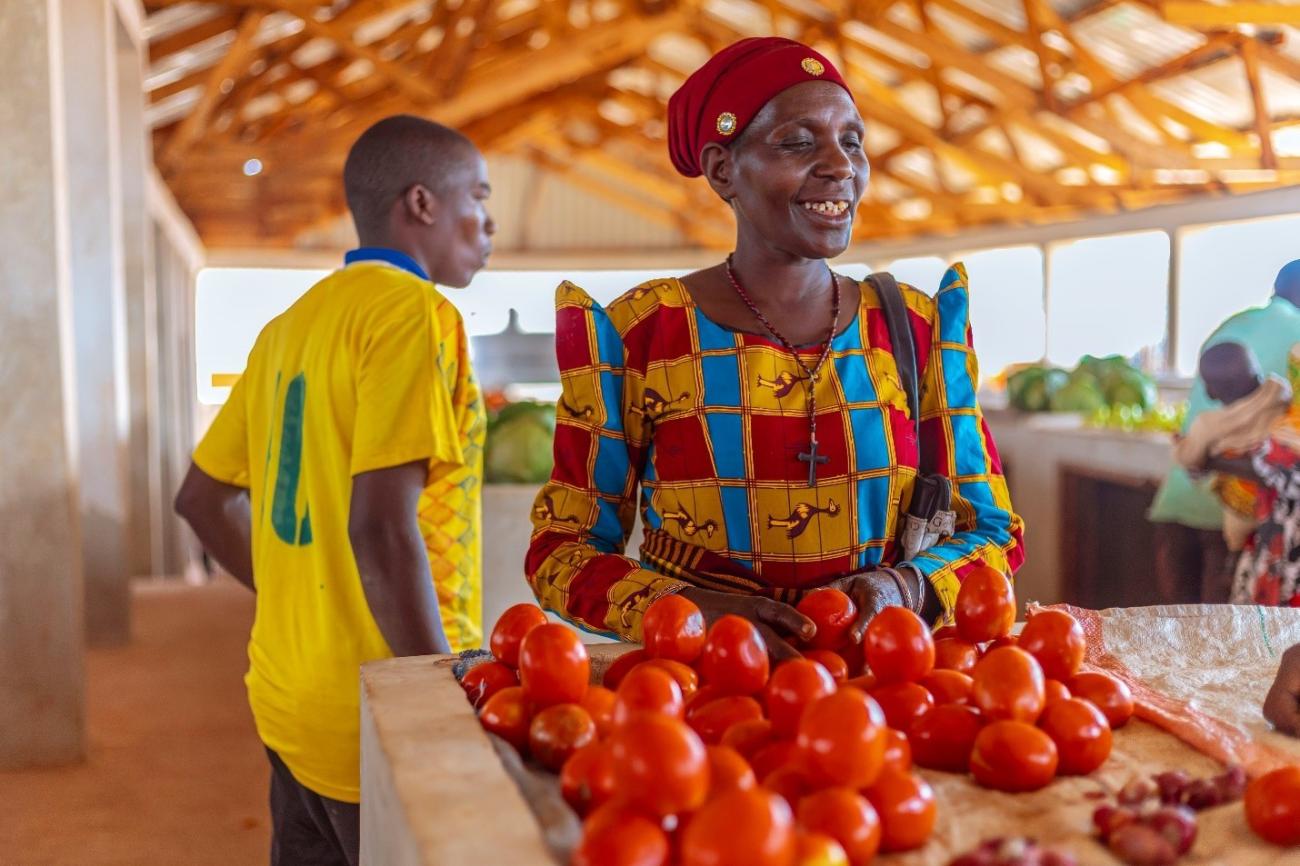For decades, Muhange Cross-Border Market, situated in the United Republic of Tanzania’s Kigoma Region, bordering Burundi, has been a hub for traders spanning a catchment area of about 200km. Offering a wide array of products and services, the market desperately needed a rejuvenation.
Justina Amato, a mother of 11 and one of the market traders, vividly recalls the harsh conditions of the old market. "There were no sheds to protect us from heavy rains. It was unhygienic and lacked essential facilities like storage, toilets, and water supply. This not only led to the spread of diseases like cholera but also subjected women, who often traded with their infants, to abuse," she said.
The UN Kigoma Joint Programme (KJP), a product of the UN in Tanzania, has given birth to a new market structure, benefiting around 3,000 traders, a majority of whom are women. The KJP is joint programme involving 17 UN agencies, aimed at fostering development and ensuring human security in the Kigoma region. Tailored to meet developmental needs of the region, which hosts over 250,000 refugees, the KJP provides support to refugees, migrants, and the communities that host them.
Reflecting on the improvements to the market, Justina added, “Our products used to rot as most of them are perishable. This market is transformative for us as it will help us store our products in a well-organized manner, reducing the burden of carrying our goods every day."
Furthermore, the revamped market has fostered peace, security, and employment opportunities, as shared by the District Government Trade Officer, Ms. Imelda Hokororo. "Prior to the project, many cases of banditry, theft, and loss of life were reported as people did business locally without a designated centre. With the centre, peace is abundant, and traders are assured of their security," she concluded.
Since its inception, the KJP has impacted the lives of over 400,000 individuals, with 67% being women. While the KJP's efforts span a broad range of sectors, they've been particularly notable in areas such as Youth and Women Economic Empowerment, Agriculture, Water, Sanitation and Hygiene (WASH), among other vital domains. The KJP has played a pivotal role in boosting Kigoma's standing across various socio-economic indicators, including enhanced access to WASH, reduced post-harvest losses, a decline in malaria prevalence among children, and increases in agricultural yields.
Highlighting the continued commitment to enhancing the region, the second phase of the programme was ceremoniously inaugurated last year, a collaborative effort spearheaded by the UN Resident Coordinator, in partnership with the Tanzanian Government, various Development Partners, and the very beneficiaries of the project.
UN Resident Coordinator, Mr. Zlatan Milisic, recognizes the importance of continuing to support the region which has seen a recent influx of refugees from the Democratic Republic of Congo. "We extend our sincere thanks to our development partners for their consistent support. The UN truly recognizes the significant responsibility borne by the refuge-hosting communities. Our commitment remains unwavering, dedicated to ensuring that we bring all stakeholder together, ensuring no one is left behind as we work collaboratively towards 2030."



















